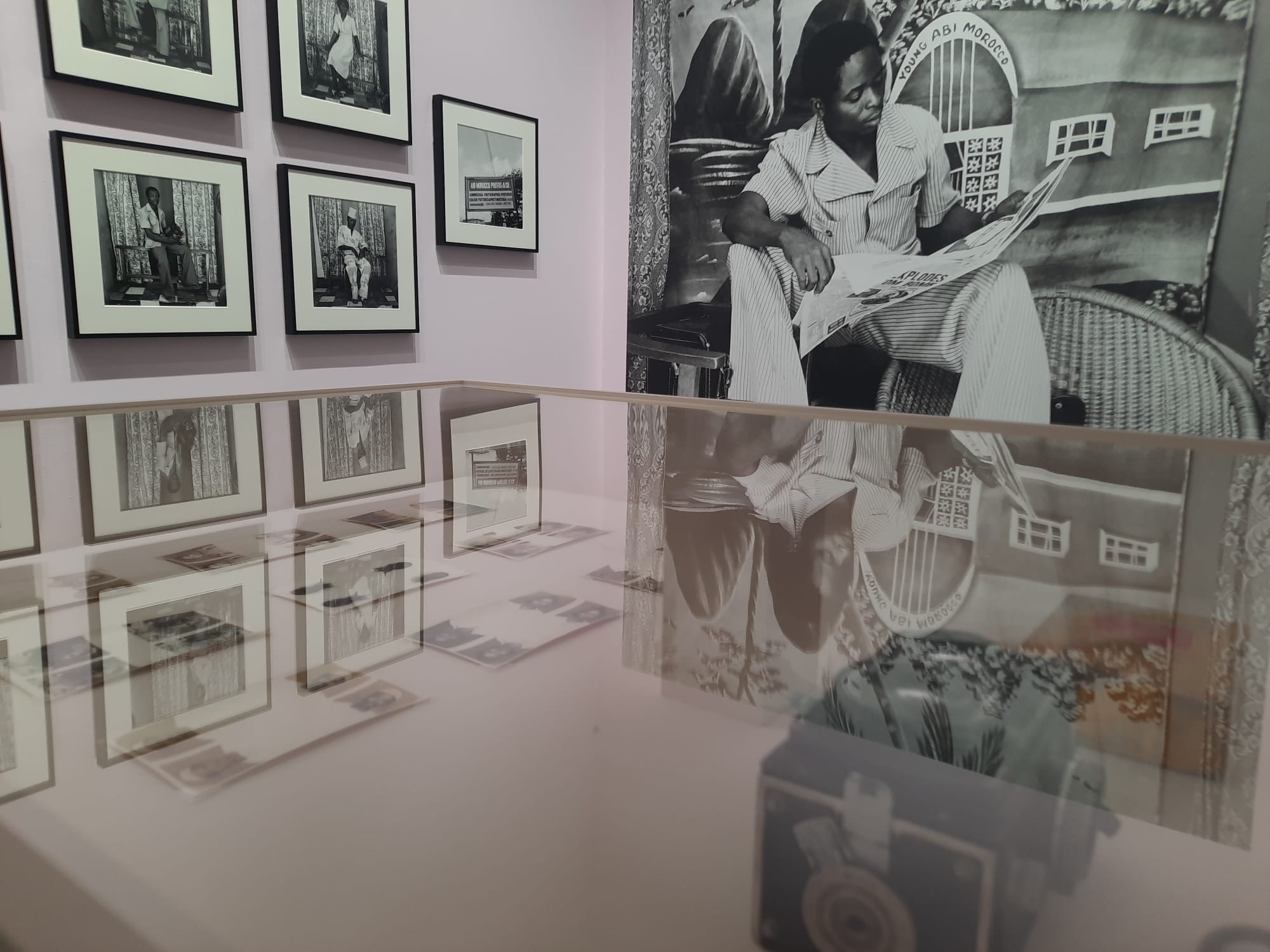Abi Morocco Photos: Spirit of Lagos // Rotimi Fani-Kayode: The Studio, Staging Desire – Autograph, London
Two very different exhibitions at Autograph in Shoreditch further their mission to “explore the creative and critical power of visual representation in shaping our understanding of ourselves and of others“.
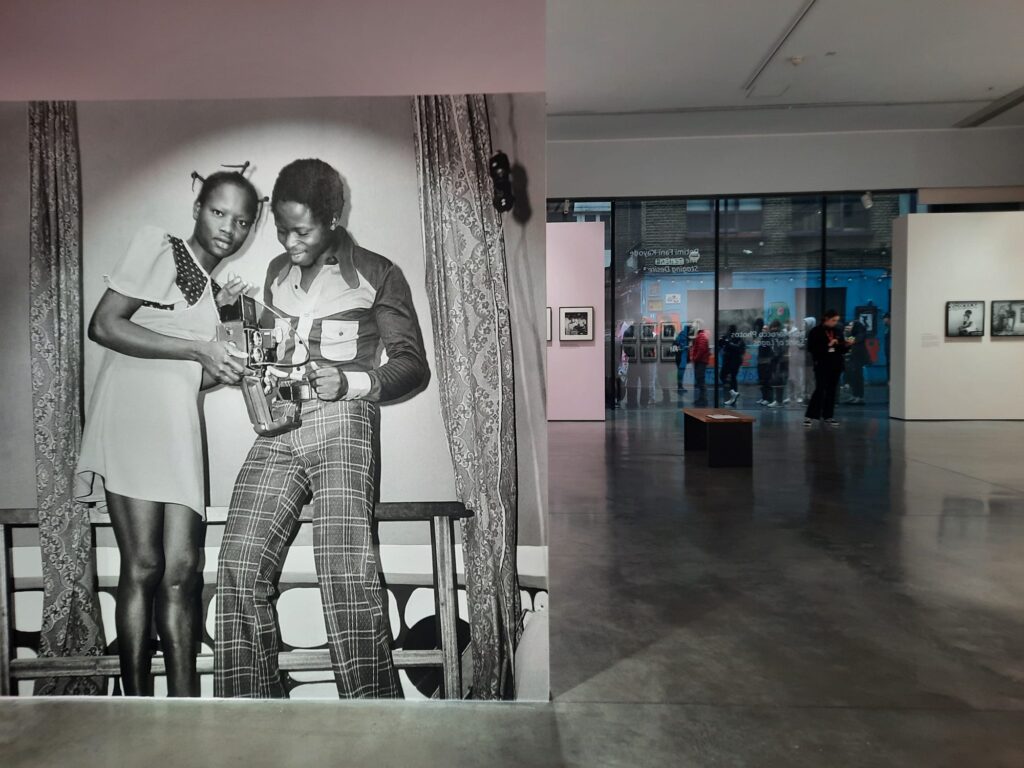
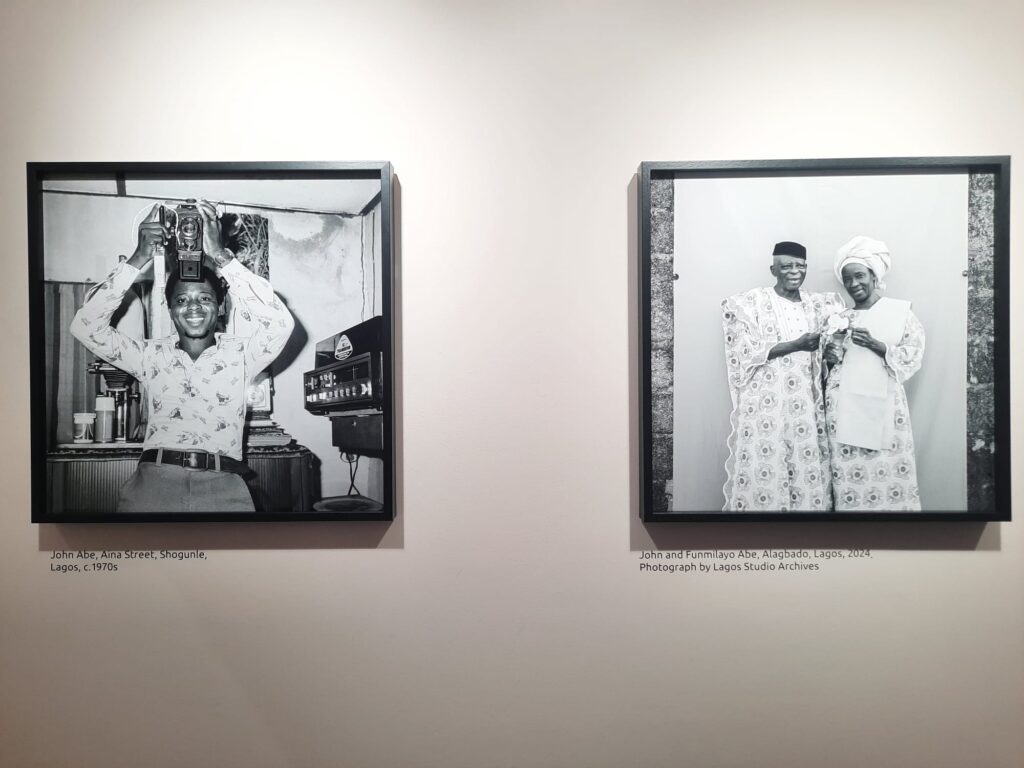
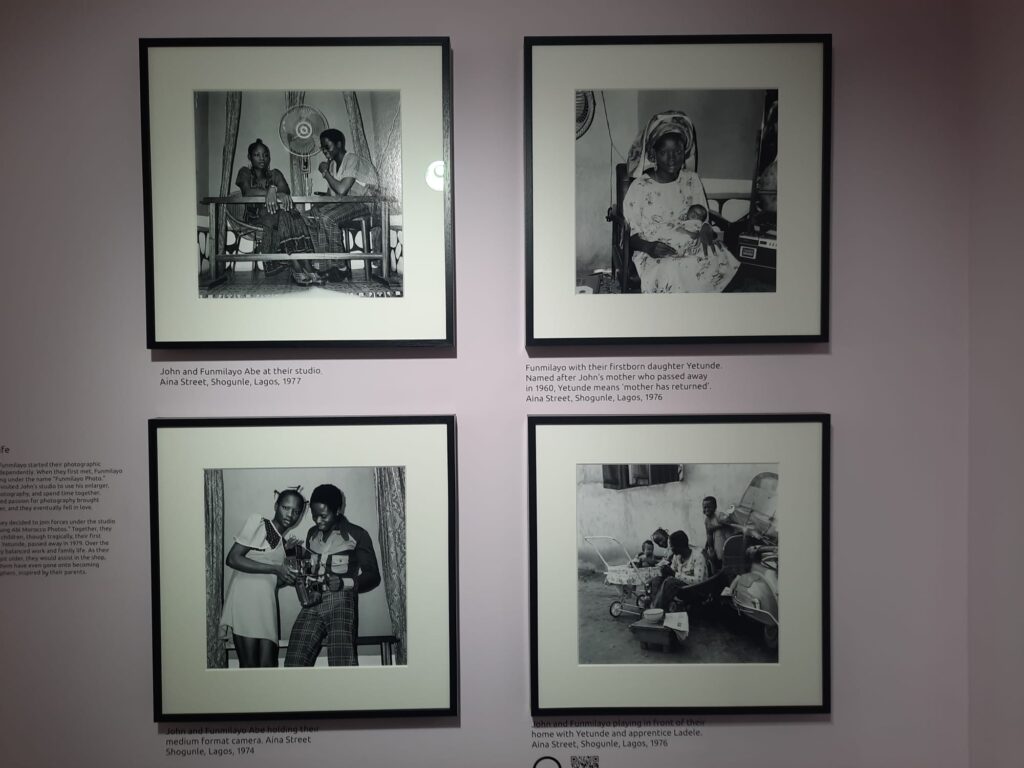
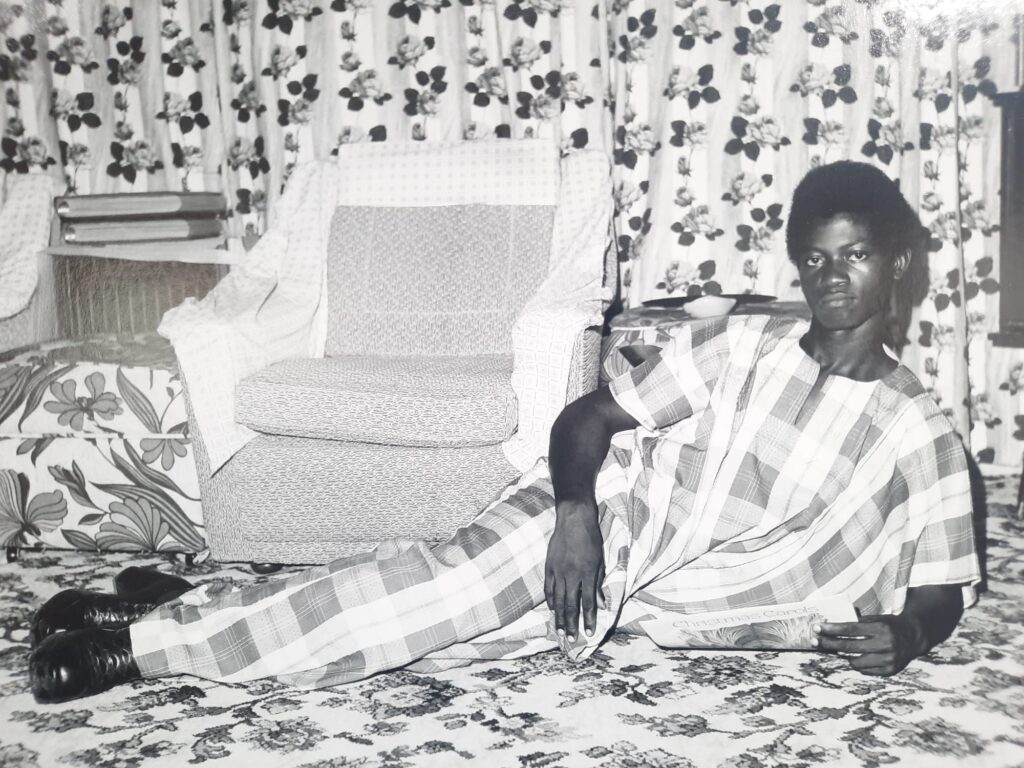
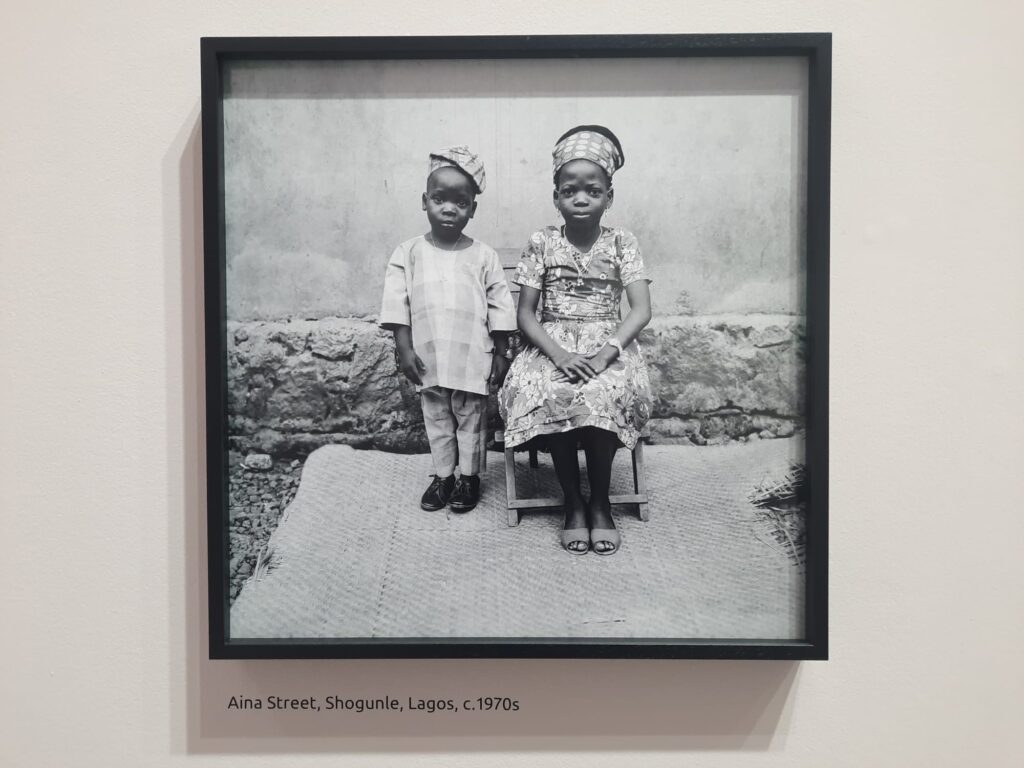
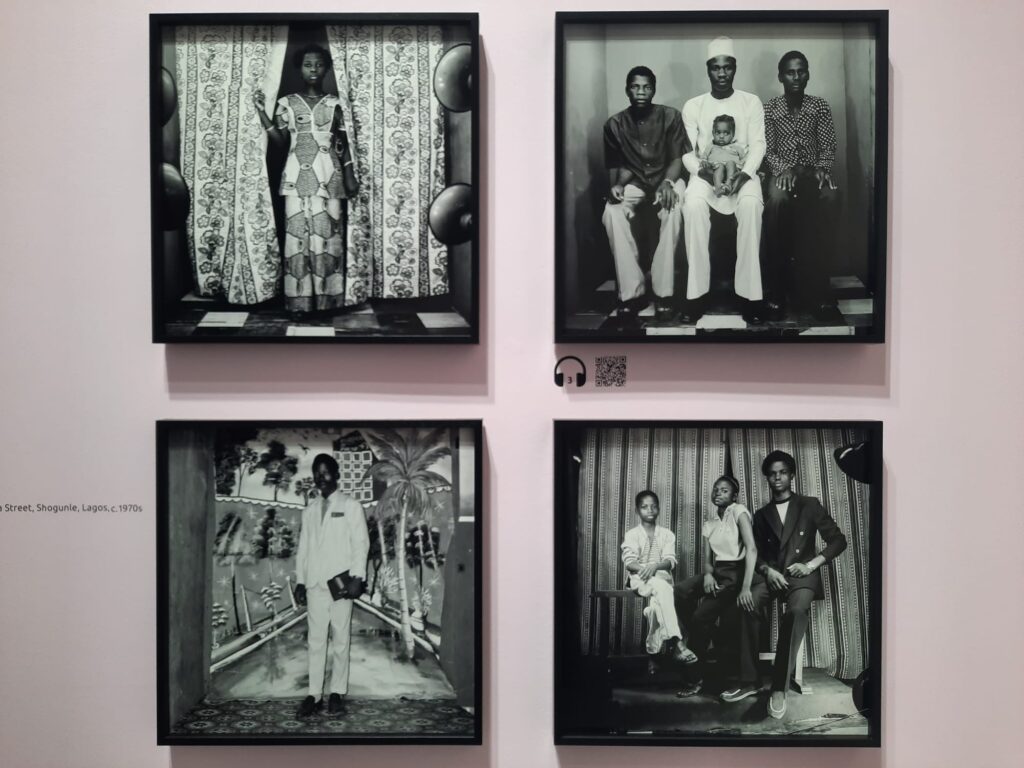
Abi Morocco Photos at Autograph
Autograph have come up once or twice before on the blog (like on this walk here), but this is my first visit to their Rivington Place gallery. When it opened in 2007, it was England’s first permanent public space dedicated to diversity in the visual arts, and also the first newly constructed public art gallery to be opened in London for 40 years. No small achievement. But Autograph are accustomed to forging new and crucial paths. Starting as the Association of Black Photographers in 1988, Autograph have since initiated projects, influenced policy, conducted research, and built a large and important collection of photographic prints, film and negatives.
I feel a little disappointed in myself that I haven’t been here to see an exhibition before. But better late than never, and the exhibitions I did see were excellent, a good compare-and-contrast to show how Autograph achieve their mission of championing artists who highlight questions of race, representation, human rights and social justice.
First up was Abi Morocco Photographs: Spirit of Lagos. Part of the Lagos Studio Archives project, this exhibition presents a selection of photographs by husband and wife team John and Funmilayo Abe. Both photographers in their own right before their marriage, they raised a large family while running a successful studio photography business. Following the closure of their business in 2006, the Abes had already downsized their archive. What remains is now preserved for posterity, a particularly important legacy following John’s death in 2024.
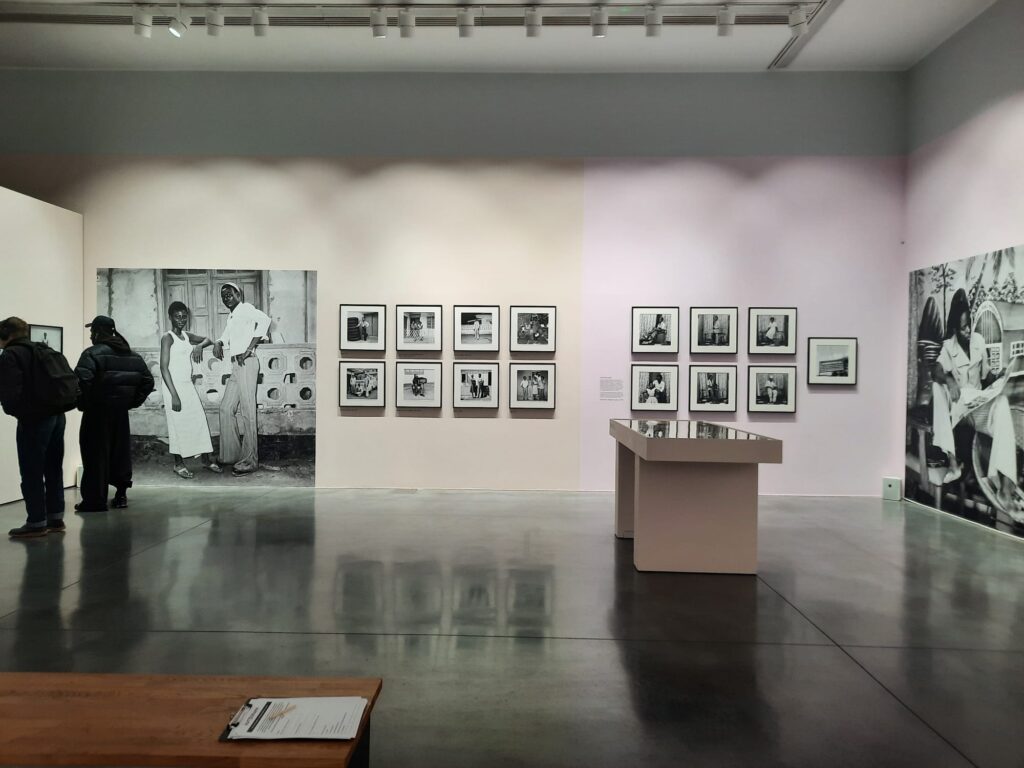
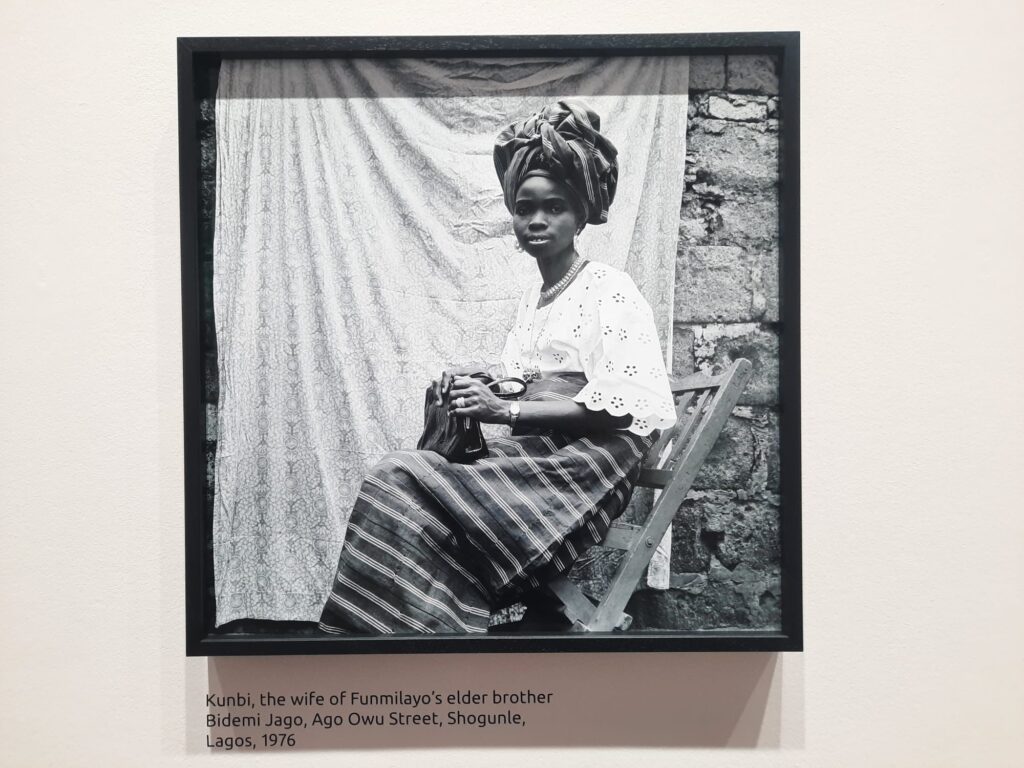
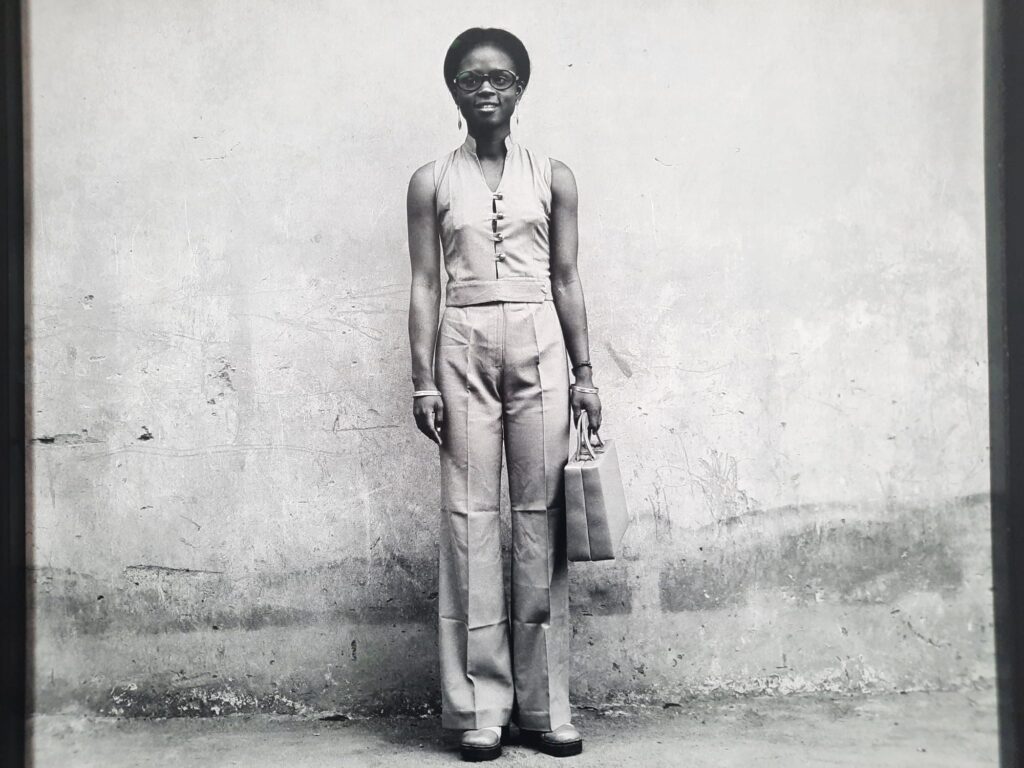
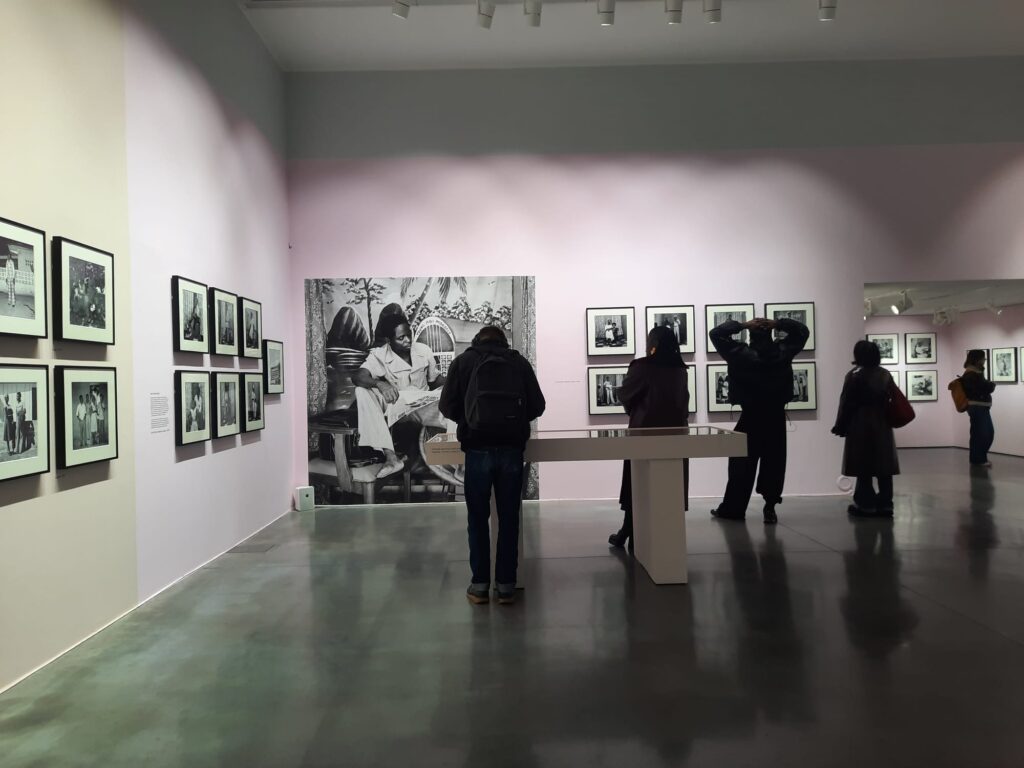
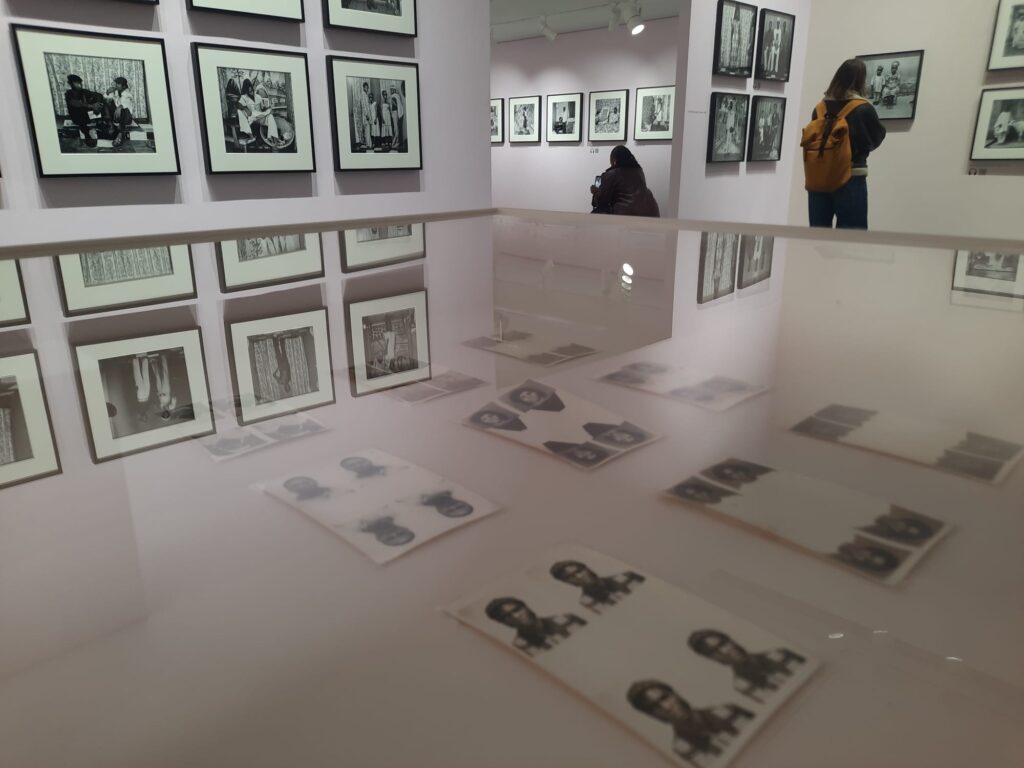
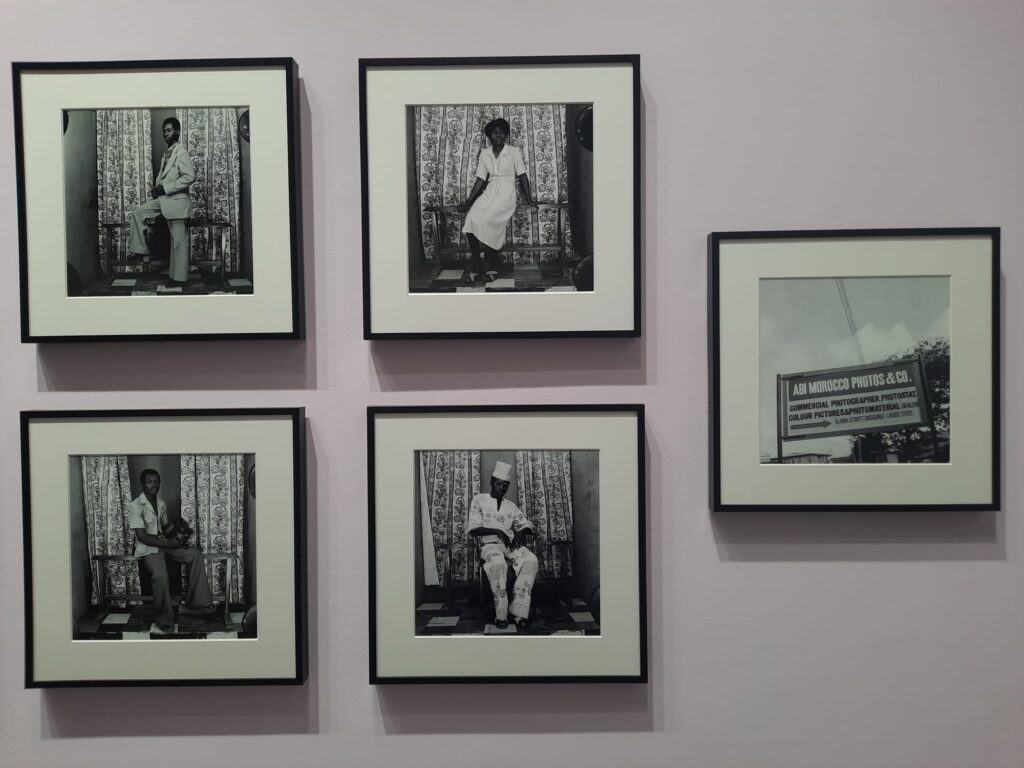
Spirit of Lagos
The images on view as part of Abi Morocco Photos: Spirit of Lagos are from a key decade for the business and for Nigeria generally: the 1970s. Nigeria’s economy was booming, underpinned by oil wealth. The people of Lagos frequented photography studios like the Abi Morocco to commemorate important moments, show off new clothes, or commission formal images.
The exhibition had a lot of similarities with James Barnor: Accra/London which I saw at the Serpentine Gallery some time ago. The decades following independence in many African (and other) nations saw an exuberant, confident youth culture develop, with money to spend on fashion and leisure. Studio photography was an important means of documenting what mattered to people. And in the case of Abi Morocco Photos, a Vespa motorcycle enabled the Abes to travel to location shoots and facilitate street photography as well.
The photographs are well-chosen, very much evoking the spirit of 1970s Lagos. As the pared-down archive of Abi Morocco Photos focuses mainly on images important to the Abe family, there is a strong sense of family and community. It’s a great insight into a marriage, a business, a time and a place. That the images are all black and white helps to make them visually striking, while a soundtrack (available on Spotify) transports visitors away from wintery Shoreditch to the sights and sounds of Lagos. A great starting place to get to know Autograph’s space and exhibitions.
Salterton Arts Review’s rating: 3.5/5
Abi Morocco Photos: Spirit of Lagos on until 22 March 2025
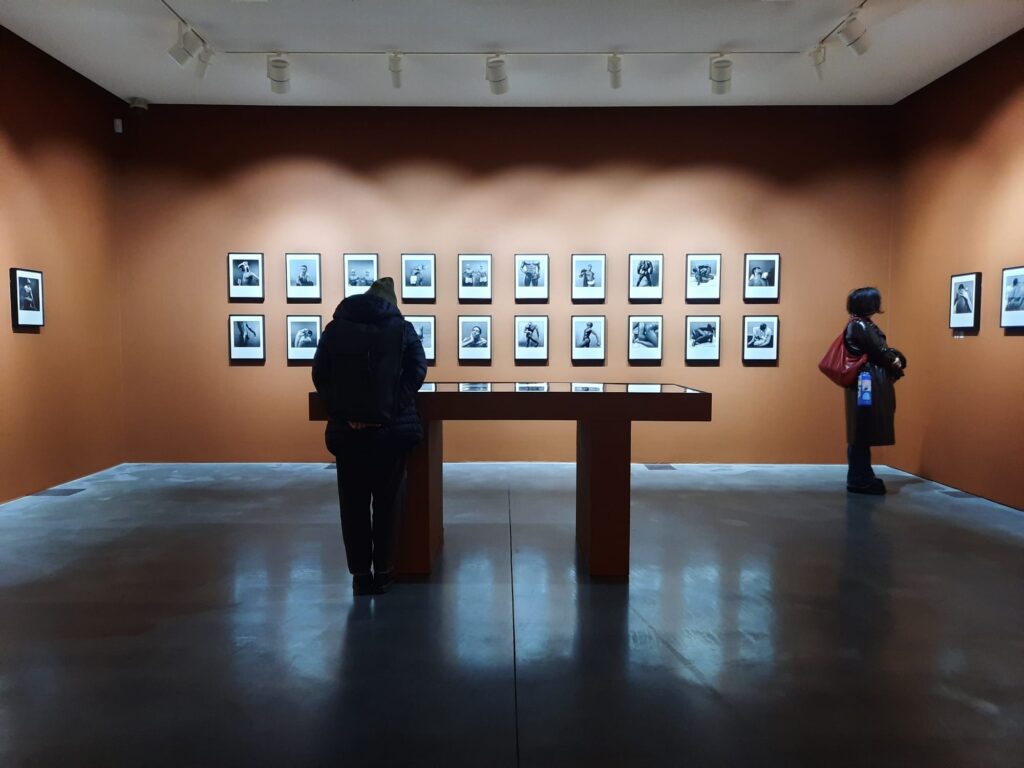
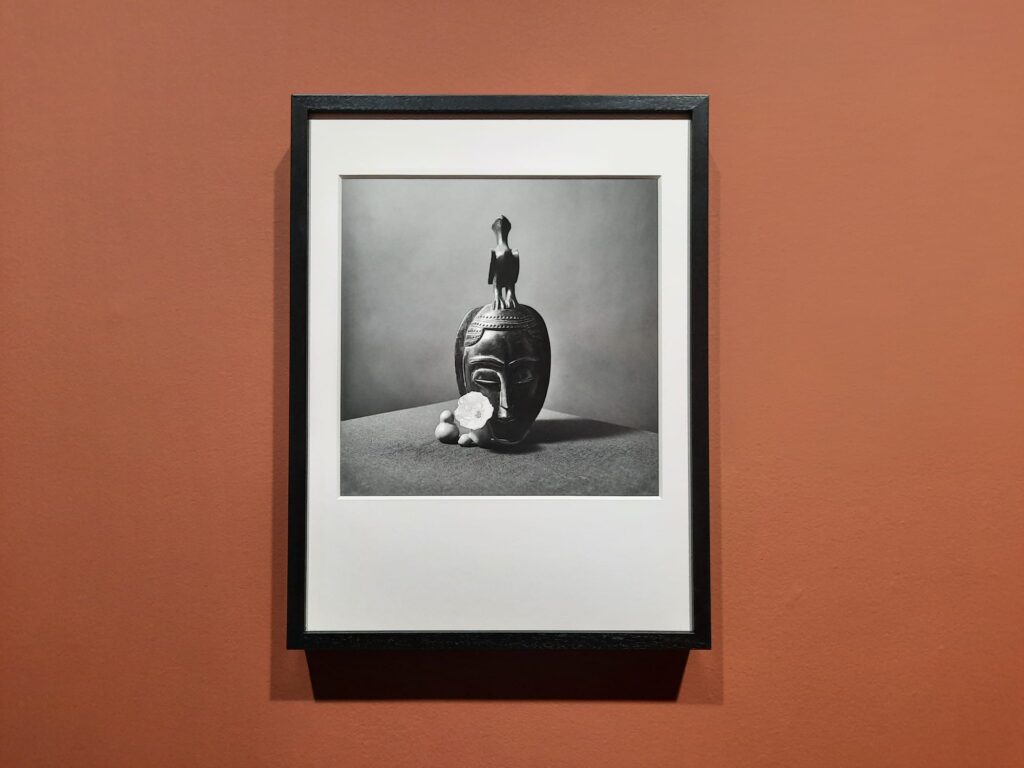
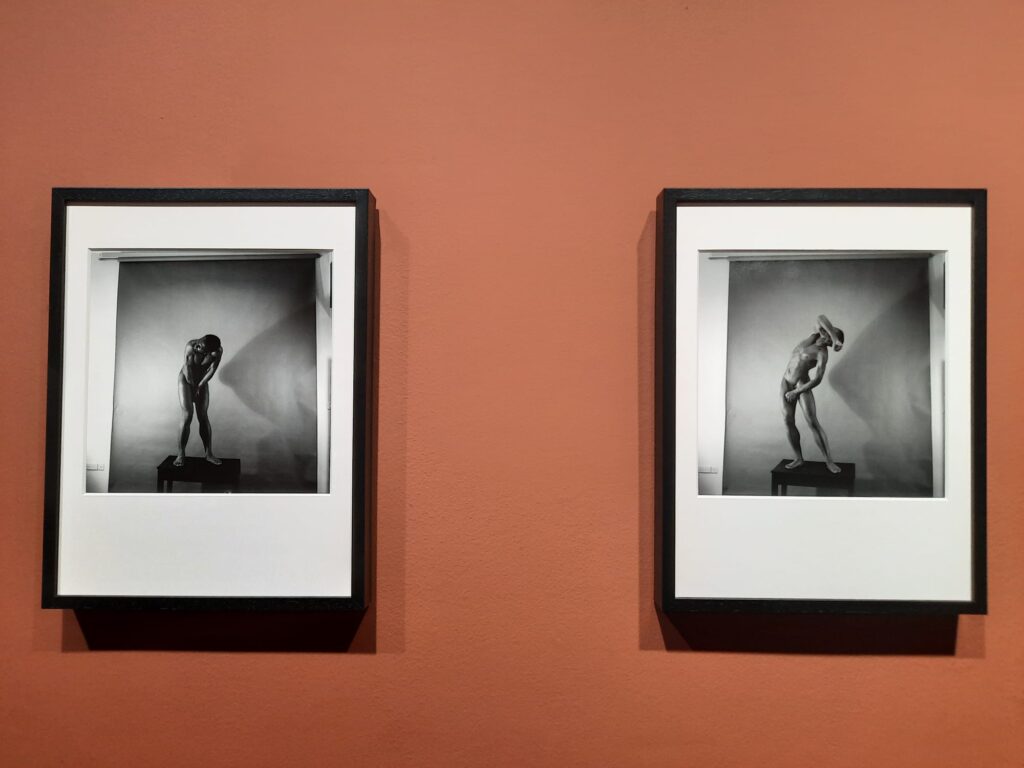
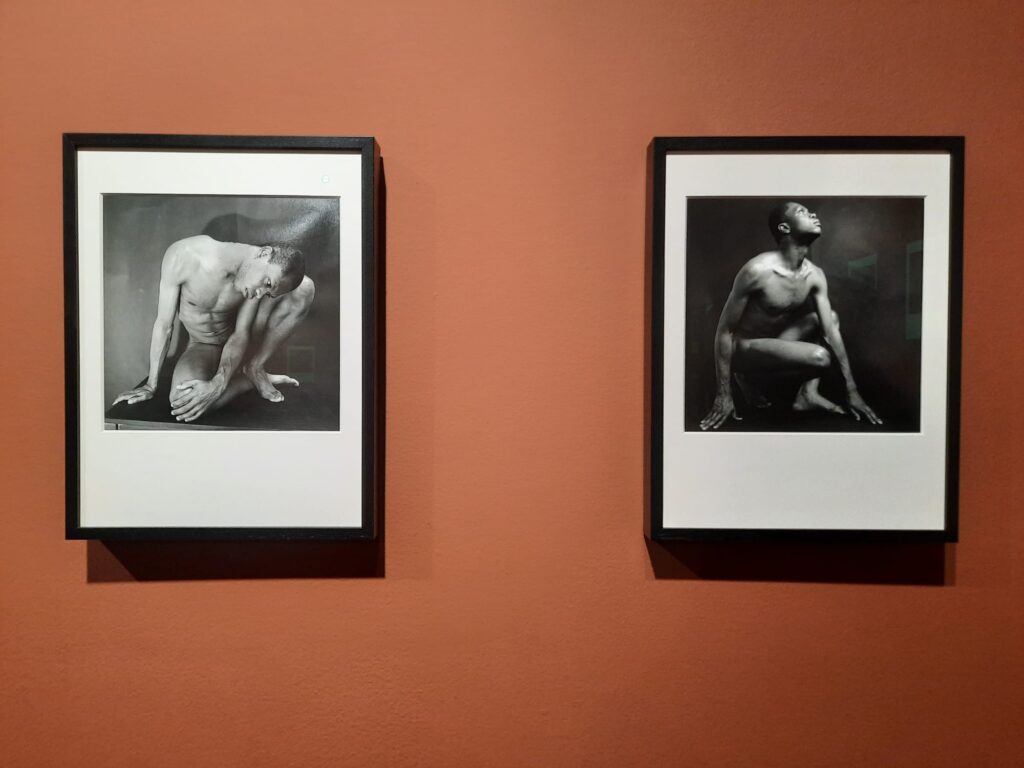
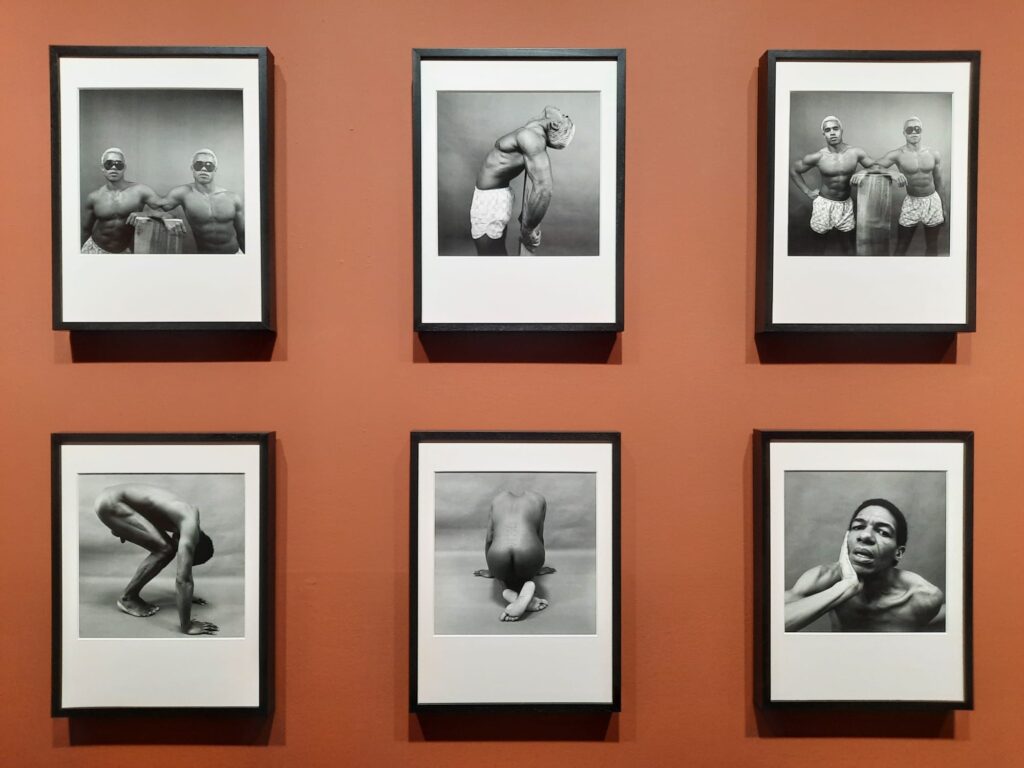
Rotimi Fani-Kayode, One of the First Chairs of Autograph
From the streets of Lagos we head upstairs to a very different exhibition, Rotimi Fani-Kayode – The Studio: Staging Desire. Well, different and yet with some similarities. A good compare and contrast. A quick introduction to Rotimi Fani-Kayode first of all, though.
Rotimi Fani-Kayode (full name Oluwarotimi Adebiyi Wahab Fani-Kayode) is of the same generation as John and Funmilayo Abe, born in Lagos in 1955. Along with his family, Fani-Kayode arrived in England aged 11, to escape civil war in Nigeria following a military coup. He attended various public schools (meaning private schools, because this is England we’re talking about). Moving to the US in 1976, Fani-Kayode earned a BA in Fine Art and Economics from Georgetown in 1980. He followed that up with an MFA in Fine Arts and Photography from Brooklyn’s Pratt Institute in 1983. Returning to the UK, he became a member of the Brixton Arts Collective and began to show his work, firstly in group shows.
Until his death in 1989 (from what Autograph describe as ‘a short illness’, I’m guessing in deference to either the artist’s wishes or his family’s), Fani-Kayode produced work which explored themes of sexuality, religion, racism, colonialism, and the tension between his Yoruba culture and identity as a gay man. For him, being an African working in a Western medium gave his works strength, allowing him to introduce concepts like the ecstasy of Yoruba ceremonies, not available to his Western counterparts.
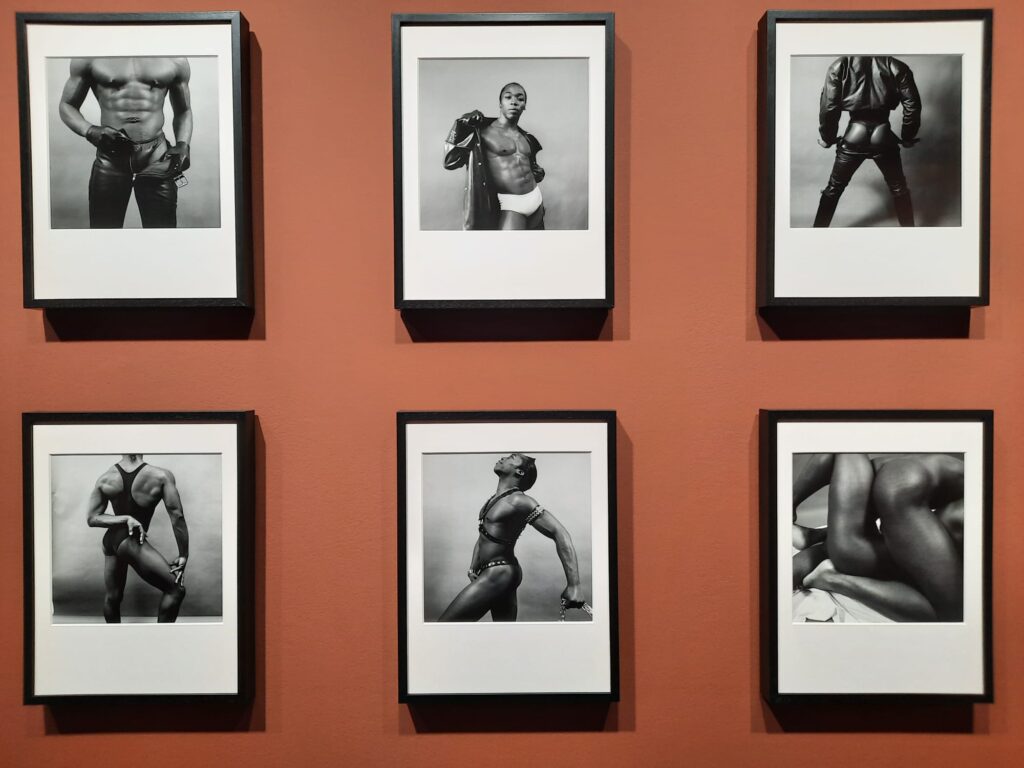
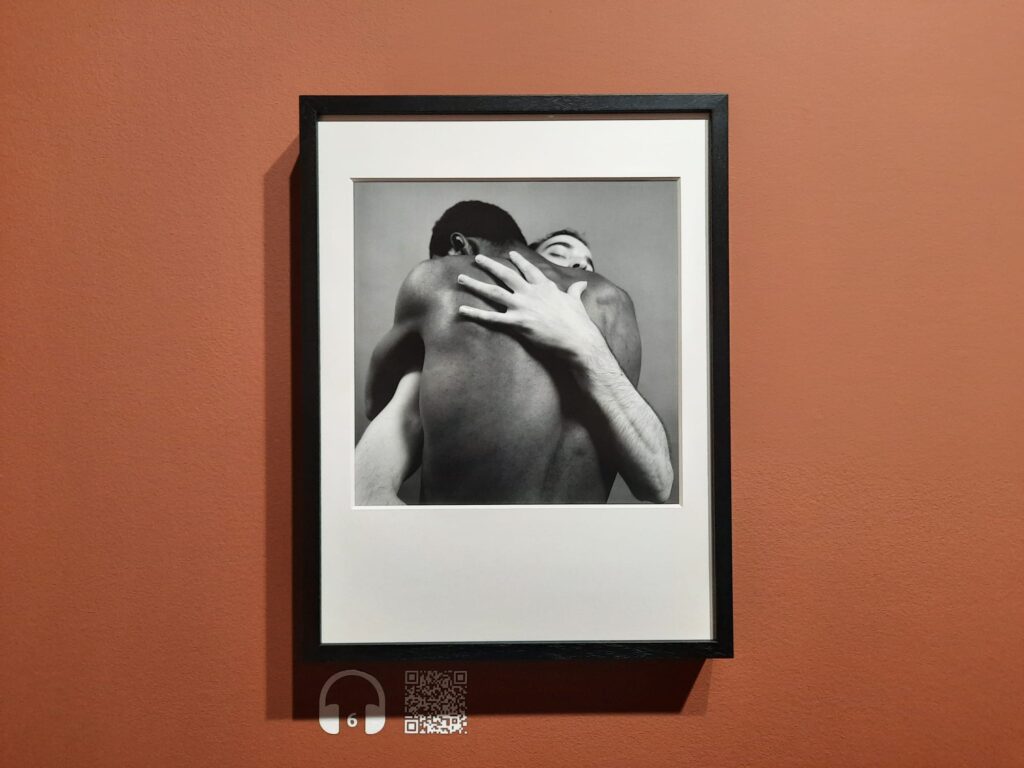
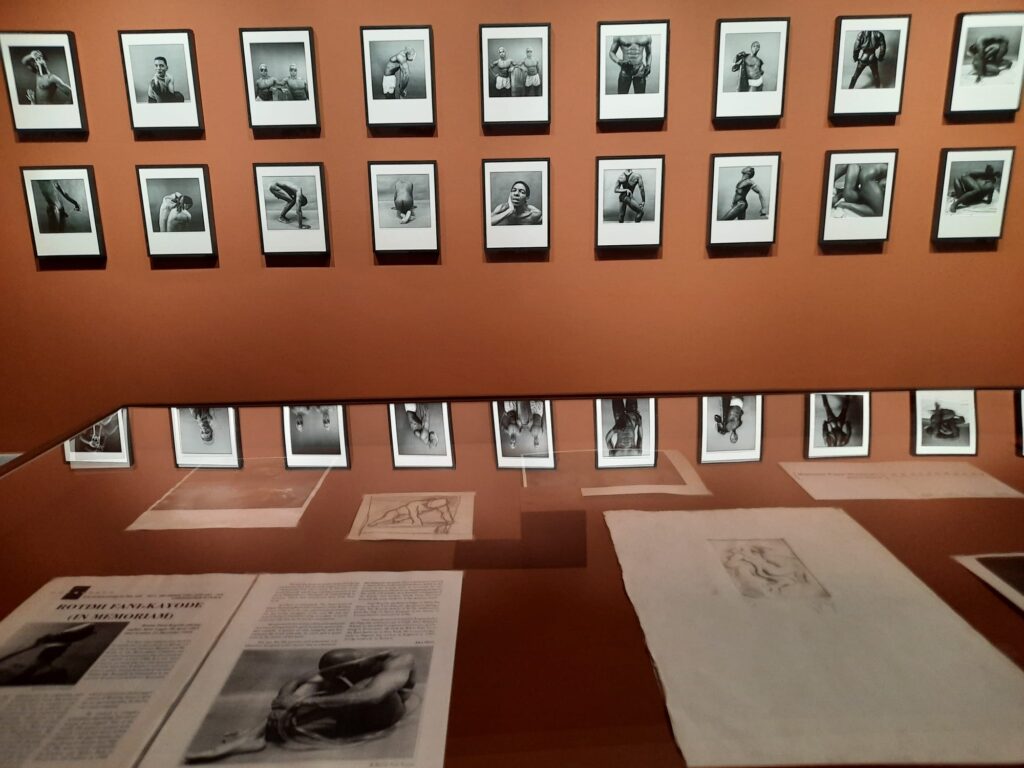
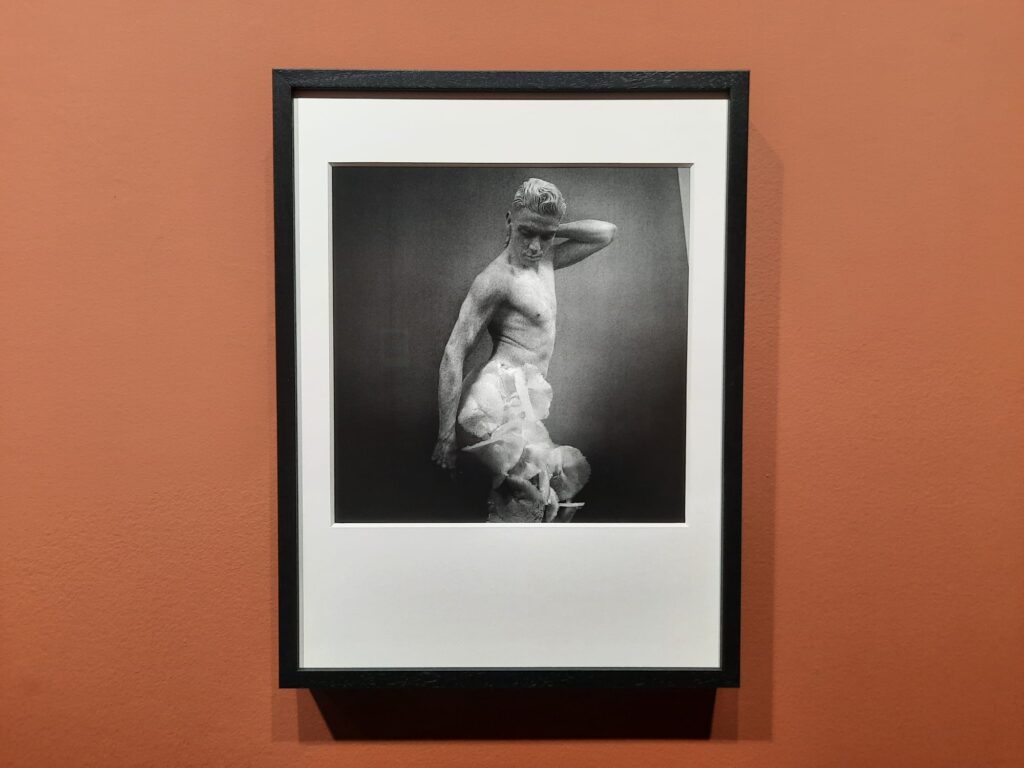
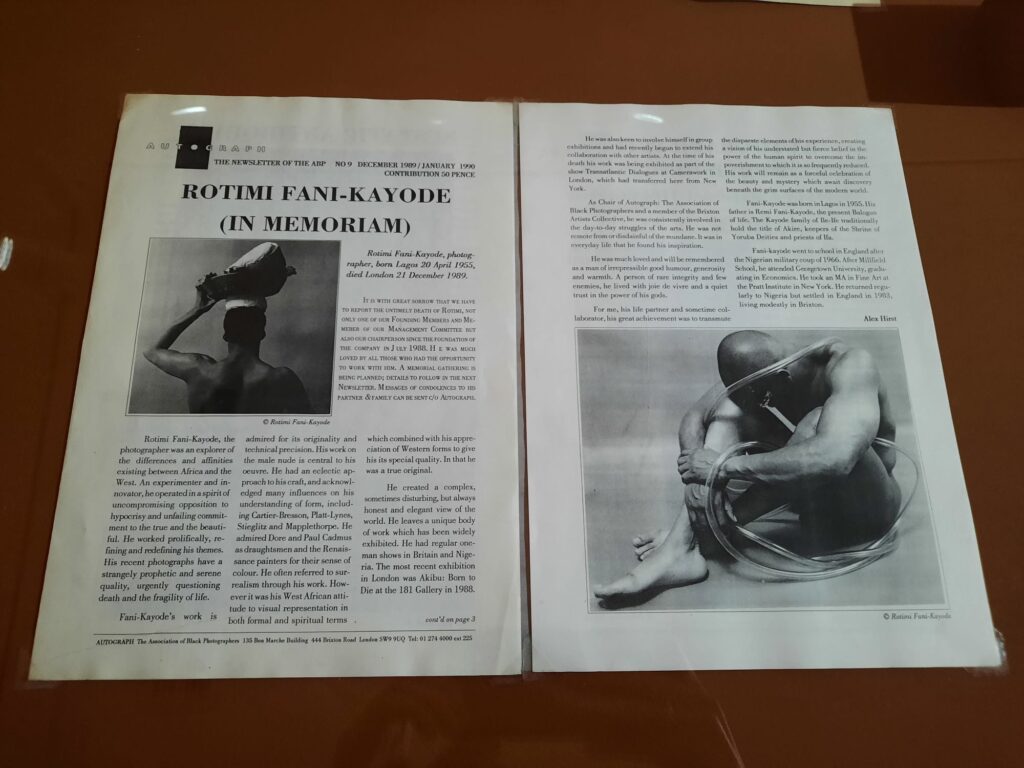
The Studio: Staging Desire
Another similarity between Rotimi Fani-Kayode’s work and the exhibition downstairs is that both feature primarily studio photography. And are shot in black and white. Do the similarities end there? I think so. Fani-Kayode’s work is a decade later, a continent away, and is far from the Abe’s cool commercial and casually familial images. Instead, Fani-Kayode’s photographs are highly posed, focusing primarily on desire and the Black male body.
There is a performativeness to Fani-Kayode’s work, in which many of the images feature the artist. There’s also a timelessness thanks to the simplicity of the compositions. Well, there is and there isn’t. The act of posing and photographing himself and other men like this, alone or embracing one another, was arguably a more urgent and political act at the height of the HIV/AIDs epidemic, the decade of Section 28. They are very powerful images, full of love, self-expression, an awareness of ‘otherness’ and a real tenderness. What a shame that this career, of one of the co-founders and one of the first chairs of Autograph, was so short.
Rotimi Fani-Kayode’s work was new to me, and this exhibition is a good place to get started. It features representative works but also never-before-exhibited images. There is also a roughly contemporary work of video art, although sadly I didn’t note who it is by, which responds to Fani-Kayode’s life, art and death. If you have time, it’s worth sitting down and watching it. A poignant place to end, after that, is at the vitrine containing the artist’s obituary in Autograph’s magazine, written by his partner, fellow photographer Alex Hirst.
Salterton Arts Review’s rating: 3.5/5
Rotimi Fani-Kayode – The Studio: Staging Desire on until 22 March 2025
Trending
If you see this after your page is loaded completely, leafletJS files are missing.

